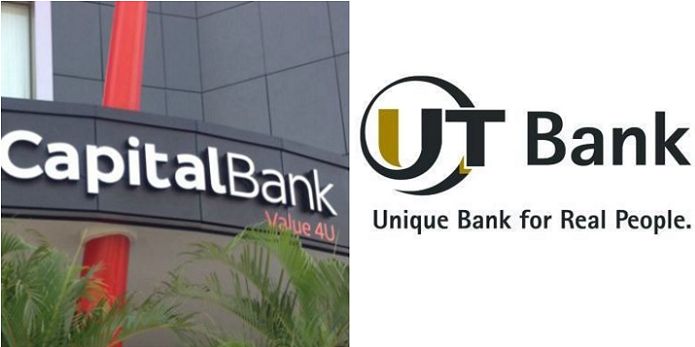
UT, Capital banks lacked capital to operate — BoG
The Governor of the Bank of Ghana (BoG), Dr Ernest K. Y. Addison, has stated that the revocation of the licences of the UT and the Capital banks was not intended to wipe out Ghanaian ownership in the banking sector.
He explained that the licences were revoked because the banks did not have adequate capital to support their day-to-day operations.
“The government has made it clear that it is interested in encouraging Ghanaian ownership of not only the banking sector but also the mining sector and all critical areas of the economy,” he said.
Dr Addison was addressing the closing ceremony of the Ghana Investment Summit in Accra yesterday.
The two-day summit, which had the theme: “Ghana — Africa’s premier investment hub”, assembled regional and global investors, executives of local and multinational corporations, government officials and representatives of non-profit institutions who are interested in Ghana’s investment opportunities.
The summit, among other objectives, sought to showcase the country as the premier investment destination in Africa and discussed how to attract strategic and development funding for key government projects.
Wrong perception
Dr Addison told the gathering of local and global investors that the central bank’s intervention in the UT and the Capital banks did not just occur, as was the perception out there.
“The two banks had, for the past two years, had a major problem collecting their loans and undertook some lending that they should not have,” he said.
According to him, in a bid to address their challenges, the two banks approached the BoG for liquidity support, an instrument which he said had been there for them for nearly two years.
“This substantial liquidity is supposed to be a short-term support to help them solve their day-to-day liquidity issue. We had big capital support for those two banks and we could not continue on that trajectory,” he stated.
The governor indicated that all attempts made to find investors for the two banks did not work, since investors were only interested in the “good part of the bank and not the bad part”.
He said the GCB Bank presented an offer that was the best, an offer that minimised the social consequences.
Background
Explaining the circumstance that led to the intervention in the two Ghanaian-owned banks, Dr Addison said earlier this year, the BoG conducted an asset quality review which showed that non-performing loans in the banking system were significantly high.
He said about nine banks were not meeting the minimum capital adequacy ratio requirement, for which reason the BoG asked them to recapitalise under the new Banking Act.
He said banks were allowed 180 days to restore the level of their capital and that was exactly “what the BoG directed the affected banks to do”.
“We revoked the licences of the two banks because they were insolvent and they did not have the 180 days’ allowance to solve their insolvency, which was allowed for only banks that were significantly under-capitalised,” he stated.
Dr Addison said he was happy that since the BoG’s directive to banks to recapitalise, all the affected banks had moved beyond the range of significantly under-capitalised, except three that were still below the 10 per cent capital adequate ratio.
“We expect that by the deadline in September this year they would have met the capital adequacy ratio of 10 per cent,” he said.
Economy
Touching on the economy, Dr Addison said the growth rate was 3.5 per cent in 2016, while the rate for this year had been projected at 6.5 per cent.
He attributed the improvement in economic growth in the first quarter of this year to a stronger current account, stronger exports and declining imports, consequently helping to improve foreign exchange, and the slowing down of the rate of the cedi’s depreciation.